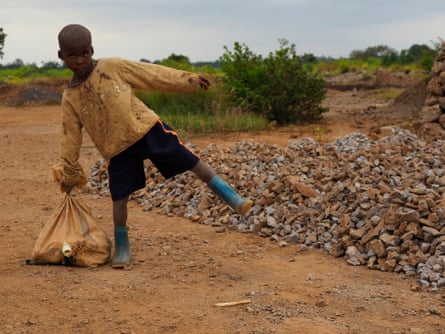A lawsuit filed by 140,000 Zambian women and children against the multinational mining corporation Anglo American has been dismissed by a South African court. The plaintiffs claim to have been affected by lead poisoning caused by one of the company’s mines.
In October 2020, a major class-action lawsuit was filed against Anglo American, one of Africa’s largest companies. The lawsuit claims that the company was negligent in preventing widespread lead poisoning in the Zambian town of Kabwe. The alleged neglect occurred during the time when Anglo American’s South African subsidiary was in charge of a large mine from 1925 to 1974.
Attorneys representing the females and minors from the South African company Mbuyisa Moleele and the British-based Leigh Day, known for handling human rights and personal injury lawsuits, declared their intention to challenge the ruling.
The mine in Kabwe, previously known as Broken Hill, is said to have caused significant environmental contamination in nearby towns and communities.
According to medical research, children in Kabwe have significantly elevated levels of lead in their bloodstream. Lead poisoning can result in various health issues such as impaired learning, infertility, brain damage, and potentially fatal outcomes.
Anglo American has refuted any accountability for the lead contamination.
“We are deeply disappointed by the ruling, which we believe is fundamentally flawed,” stated Richard Meeran, a partner at Leigh Day, and Zanele Mbuyisa, a founding partner at Mbuyisa Moleele, in a joint statement.

They stated that they are dedicated to obtaining justice for the 140,000 women and children who have been impacted by lead poisoning in Kabwe. The affected communities have made it clear that they intend to appeal.
On December 15th, Judge Leonie Windell of the High Court in Johannesburg issued a 126-page ruling, stating that the applicants are requesting permission to pursue an unreasonable claim that could establish a dangerous precedent.
This means that a company may be held accountable for its actions even after it has stopped operating, even if those actions were not known to be harmful at the time. This could happen years later and impact future generations.
The legal case was brought to court in South Africa due to Zambia’s lack of allowance for class-action lawsuits and prohibition of lawyers working on a contingency-fee basis.
The group of UN special rapporteurs and Amnesty International backed the case, claiming that Anglo American’s resistance to the class action went against their own human rights policy and publicly stated dedication to corporate responsibility guidelines established by the UN in 2011.
In the previous year, David Boyd, an expert on human rights and the environment, described Kabwe as a highly infamous “sacrifice zone” where the residents are forced to bear the effects of pollution that they did not contribute to.
According to Richard Price, who serves as the legal and corporate affairs director at Anglo American, the initial claim was completely misguided in terms of its legality and accuracy.
“As we have stated throughout, Anglo American has every sympathy for the situation in Kabwe, but we are not responsible for it,” he said. “We welcome the clarity and force of the court’s decision to dismiss this claim as untenable.”
Source: theguardian.com


